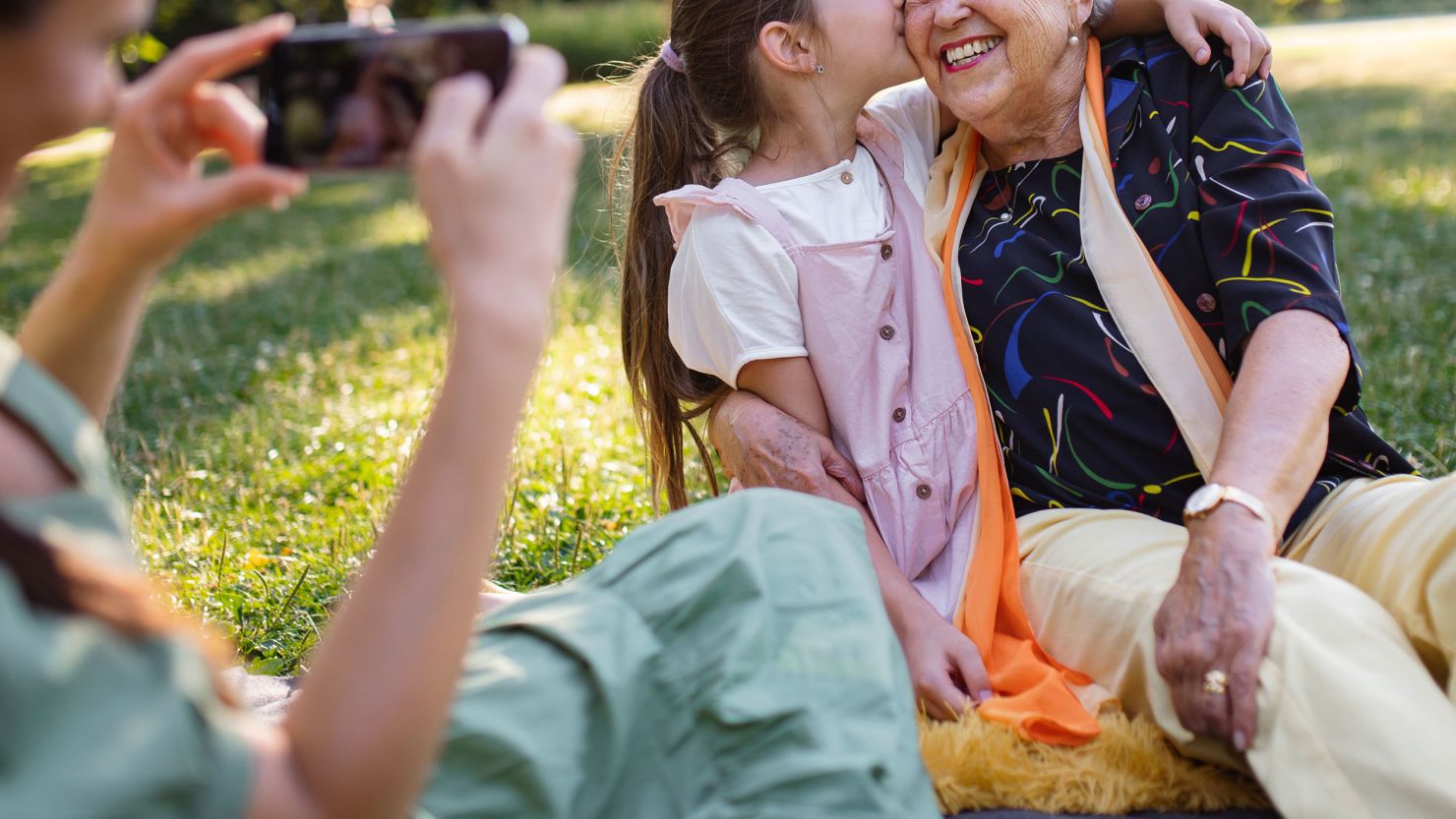Get inspired by a weekly roundup on living well, made simple.?Sign up for CNN’s Life, But Better newsletter for information and tools designed to improve your well-being.
When it comes to a mom’s mental health, grandparents are a big deal, according to a new study.
“Mothers are less likely to purchase antidepressants if their own parents are younger than 70, employed and do not have severe health problems,” said the study’s lead author, Dr. Niina Mets?-Simola, a lecturer and demographics researcher at the University of Helsinki in Finland.
Researchers tracked 488,000 mothers of young children in Finland between 2000 and 2014, according to the report published Thursday in the journal Population Studies.
The research team collected demographic data including whether the mother had a partner or was separated as well as the age, health, distance and employment status of the grandparents, both maternal and paternal.
The connection between access to grandparents’ help and lower use of antidepressants was especially strong in mothers who were separated from their partners, the study said.
“Grandparents are an important source of support to families with children, and support from others is well-known to protect individuals from depression,” Mets?-Simola said via email. “As the association between maternal depression and adverse child outcomes is well established, support not only matters for the mothers’ wellbeing but also to the growing numbers of children living with separated mothers.”
It’s no surprise that more access to support was associated with fewer purchases of antidepressants, given how important community is to parenting, said Lynne McIntyre, a perinatal psychotherapist and a researcher with the AFIN Research Group at the Autonomous University of Barcelona in Spain. She was not involved in the study.
It may be less common in US society for generations to live together and more common for children to move farther away from their parents when starting their families, but it still takes a village, McIntyre said.
“The fact that we live differently now and that more women are more highly educated and working, that doesn’t mean that that did away with our need for really, really strong and tight social support,” she said.
What happens when grandparents can’t be there?
There were instances when grandparents might have a negative impact on the mother’s health.
The highest antidepressant use was in moms who had parents or in-laws who were older, in poor health or living far away, the study showed. The researchers hypothesized that the grandparents were not able to provide support to the parent in those situations, and instead the parent likely faced increased stress to take care of the older adults.
Mets?-Simola noted that the research was done in Finland, which has generous access to health care and childcare, so the support families got from older generations may extend beyond those needs.
These other needs can look like having someone to talk to, having reinforcements when you need to run out of the house with no one to take care of your child, or in McIntyre’s case, having a door to knock on at 3 a.m. when a thermometer is not taking a baby’s clearly high temperature, she said.
While such support may come from grandparents, families who don’t have that help aren’t at a loss, she said.
“The social support has to come from somewhere,” McIntyre added. “Is it coming from aunts and uncles? Is it coming from friends? Is it coming from, from maybe, you know, systems and communities and groups that we set up?”
Forming your community
When McIntyre moved into a new home, she said her usually more introverted husband asked if they could have all the neighbors over.
She said she expressed surprise, but he explained those neighbors would provide playdates for their kids, would go through school systems with them, and might be there in a pinch — so they better make those connections.
Going out into the community is one way to build the village that helps you raise your children, she said.
Even the internet can help. Talking in groups on social media with other parents and caregivers may not give you the support you need, but it can help connect you with friends or parenting groups in your area, McIntyre added.
Putting yourself out there early may save you from feeling isolated and alone later on, she said.
“You have to be a little more proactive about it,” she said. “It’s almost like dating.”



